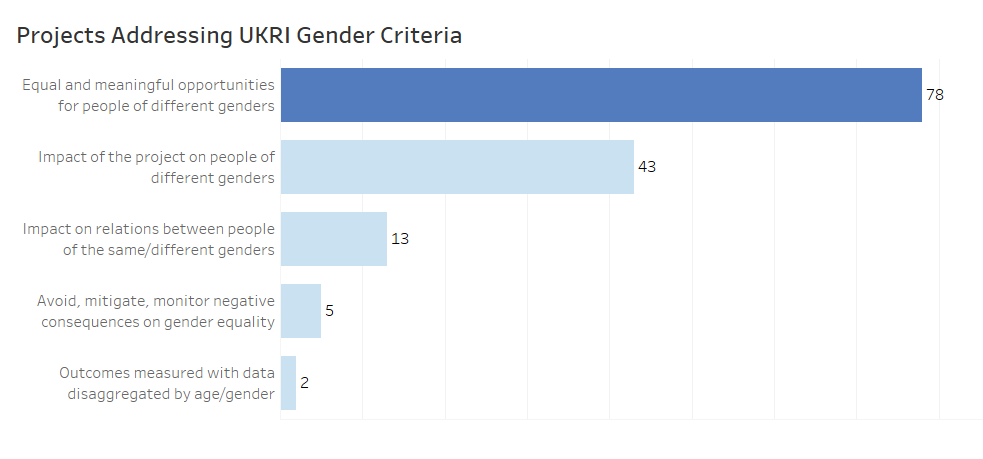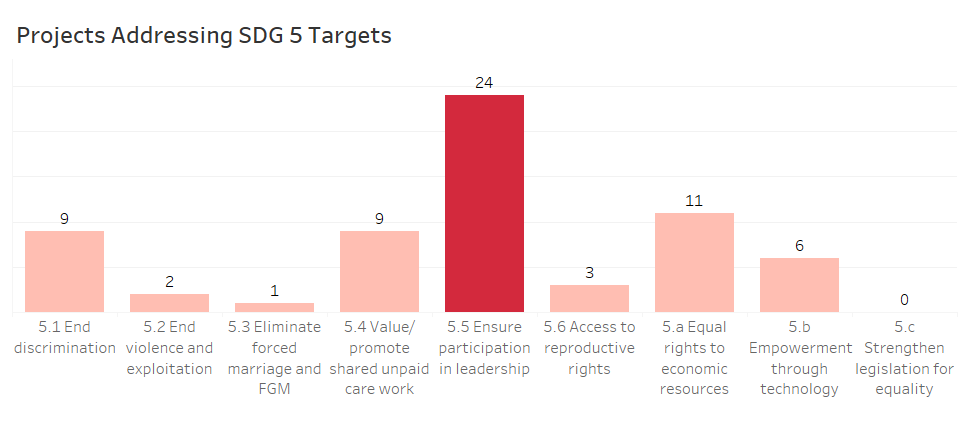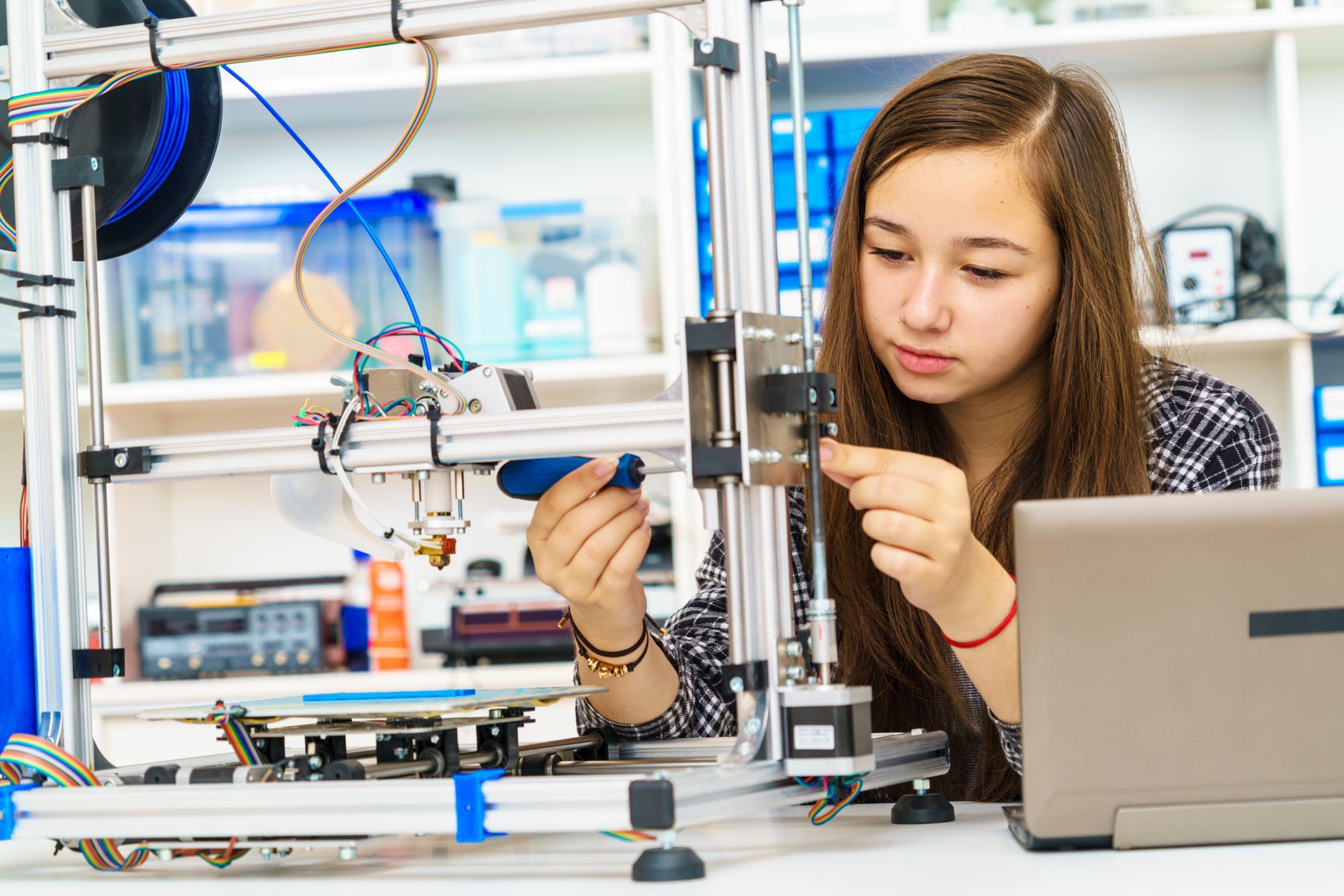Ellie Anghileri – March 5, 2021 – 14 min read

The year 2020 marked the 25th Anniversary of the Beijing Declaration and Platform for Action, the most progressive blueprint yet for advancing the rights of women and girls. According to a report by UN Women, the last 25 years have seen many advances for women’s empowerment. 274 legal reforms have been enacted across 131 countries in support of gender equality, and gender parity in education is being reached at the global level. But there is still a long way to go for the world to achieve true gender equality.
Data from the Sustainable Development Goals Report 2020 shows that the Covid-19 outbreak has meant rollbacks in many aspects of women’s lives. For example, there has been a 30% increase in cases of domestic violence in some countries, and support services focused on gender-based violence have reduced operations or shut down entirely. Women worldwide have also taken on additional household burdens despite making up 70% of the frontline health and social workers fighting the virus.
Gender equality is one of UNESCO’s two global priorities. UNESCO believes that any form of discrimination based on gender is a violation of human rights, as well as a barrier to achieving the 2030 Sustainable Development Goals. It promotes the clear message that women and men must enjoy equal opportunities, choices, capabilities, power and knowledge as equal citizens.
The anniversary of the Beijing Declaration provides an opportunity to take stock and reflect on what is being done collectively to address gender inequality, and how much more there is to do. The Newton Prize is part of that conversation. Since 2017 UNESCO has administered the Newton Prize application process for the Department for Business, Energy and Industrial Strategy (BEIS).
The Newton Prize
The Newton Prize is part of the Newton Fund. The fund spans 16 countries around the world. Every year the prize has focussed on a different combination of these countries, each with their own priorities for research and development. The 2020 prize featured projects between the UK and Egypt, Jordan, Kenya, South Africa, and Turkey.
Whilst Newton funded projects span many different topics, the Newton Prize strives to encompass gender equality as a core value and all applicants are asked to reflect on the ‘gender impact’ of their project, as well as the wider impact on economic development and social welfare.
73% of Newton Prize 2020 applicants (105/144) reported that their project had helped to reduce gender inequality. This is incredibly promising. It reveals that a large proportion of applicants are tackling gender inequality, and implementing creative solutions through their work to promote equity in their local communities.
We wanted to take a closer look at this figure to help us understand what it meant. While we cannot make broad conclusions about the Newton Fund or the prize from this data, it is a useful way to think about the 2020 cohort and how they are addressing these important issues.

Source: Newton Prize applications 2020
Gender Criteria
UK Research and Innovation (UKRI) is a delivery partner for the Newton Fund. It has developed detailed guidance on gender equality in research applications, including five criteria for considering gender impact in research. We used these questions to help assess our Newton Prize applicants. Some projects addressed more than one criteria.
Putting measures in place to ensure equal and meaningful opportunities for people of different genders was the most common way applicants were addressing the issue of gender inequality. Ensuring gender diversity in workforces, including women in decision-making and having gender-representative samples all fall into this.
A good example of this was a project from Egypt which has created a collaborative network for researchers and entrepreneurs working on virtual heritage technologies. This research is a response to the decline of tourism and foreign visitors to Egypt, affecting many sections of society and the economy. In a sector typically dominated by men, the project team has prioritised the inclusion of women who make up 60-65% of trainees and participants, and at least 50% of leadership across all teams.
Sustainable Development: Goal 5
We asked all applicants about how their projects were working towards the Sustainable Development Goals. 38% of applicants (55/144) reported that their project directly addressed SDG 5: Achieve gender equality and empower all women and girls. This goal has nine sub-targets to measure progress. We can see a breakdown of how projects were spread across the sub-targets below.
Again, some projects addressed multiple targets.

Source: Newton Prize applications 2020
The sub-target that the largest proportion of projects addressed was 5.5 which ensures women’s participation and equal opportunities for leadership. This insight mirrors the broader dataset around the UKRI criteria. The data collected indicates that the Newton Prize 2020 was strong in this area, but more information is needed on the impact of these actions.

For the Newton Prize 2020 collectively, there is a good range of interventions on ending discrimination, promoting shared unpaid care work, giving equal rights to economic resources, women’s health and more.
An example of this is a project which has come up with a solution to the problem of unreliable access to emergency services in Kenya. Upesy is an app which can share user location and notify emergency services at the press of a button. This is particularly important for women, who are more vulnerable to gender-based violence and other harmful acts. The app is being developed to support vulnerable women at risk of violence and to enhance coordination between organisations responding to and tracking these incidents.
Another example is a project from Turkey which has developed a model to train medical professionals in surgical treatments for breast cancer, the most common cancer in women worldwide. Surgitate’s model allows surgeons to practice oncoplastic techniques to conserve healthy breast tissue. It improves the medical and aesthetic outcomes of the treatment and improves the patient’s physical and mental wellbeing post-surgery.
The theme of International Women’s Day 2021, #ChooseToChallenge, is about challenging gender bias and inequality, and celebrating women’s achievements. We hope to encourage researchers to consider how their research is advancing gender equality and what more we could all be doing to empower women.
This article originally appeared on Newton-GCRF Data Insights.
Share this via…



